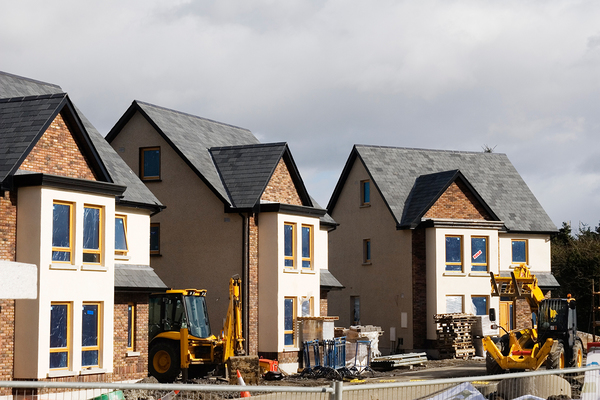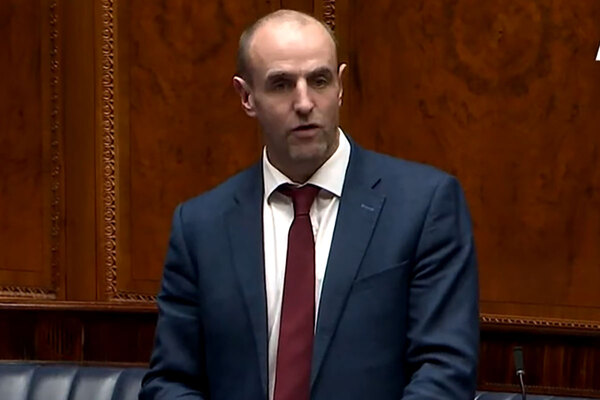You are viewing 1 of your 1 free articles
 Ben Collins
Ben CollinsWe’re in talks about meeting citizens’ need for remote working and learning space
The pandemic has shone a light on the the need for more learning and working space for residents, and the Northern Ireland Federation of Housing Associations (NIFHA) is in talks with the Northern Ireland Executive to make this happen. More widely, the abolition of the bedroom tax is also important, writes Ben Collins
It is now more than five months since the start of the COVID-19 outbreak and the UK going into lockdown. While we do not know yet with certainty what the long-term effects will be, there are trends from a housing perspective which are clear.
Many people have worked remotely over the past number of months and this is something which is likely to continue up to and beyond the successful roll-out of a vaccine, assuming one becomes available at some point. However, the pandemic has led to a cultural shift in working practices.
Some organisations have already indicated that their staff can work remotely on a permanent basis. While this is not true for all, there are likely to be substantial numbers who will do so on an ongoing basis.
It can be surmised that remote working or working from home was something that was likely to only be done on a regular basis by those in certain jobs.
Now people across all types of occupations, including those historically working in contact centres, are working remotely.
There is an expectation, and in fact a need, for remote working and learning space for all our citizens. Students at primary and secondary schools as well as those in further and higher education are studying remotely, too. The housing association sector wants to meet this need and we have begun to have conversations with those in the Northern Ireland Executive about how this can be facilitated.
NIFHA has previously called for the abolition of the bedroom tax in Northern Ireland and with the necessary increase in remote working and learning, this has become more urgent.
While the NI Executive has put in place a series of welfare mitigations so that the bedroom tax doesn’t apply, we need to provide certainty for our tenants for the longer term. As a sector we want to continue to provide good-quality homes for our tenants and the ability to work and study remotely is a key part of this.
This is common across all tenures of housing and similarly there is an increased desire for green space around properties as people are spending more time at home.
This is one of the ways in which our sector can help to create resilient communities. Dealing with this pandemic isn’t just about securing a vaccine and providing sufficient personal protection equipment (PPE), it’s also about ensuring that our citizens can live, work and study safely in a way which minimises the risk of being exposed to coronavirus and enables a good quality of life.
Providing homes with remote working space, green space and of a high energy efficiency that help us to address the climate crisis is key, the alternative approach of doing nothing will be more costly in the long run.
The NI Executive is in the process of finalising a new programme for government which will include, for the first time, a specific housing outcome.
Understandably this work has been delayed by the onset of the pandemic. However, the construction of new housing, as well as meeting urgent need, is recognised by government as being key to the region’s economic recovery.
Our own research has shown that there is an economic multiplier effect of around £1bn per year for the wider regional economy through the development of new social housing. This will be key in rebuilding our economy.
“Providing homes with remote working space, green space and of a high energy efficiency that help us to address the climate crisis is key, the alternative approach of doing nothing will be more costly in the long run”
We cannot do this in isolation and need to work with the wider construction industry, as well as government and statutory agencies, to achieve this.
From a housing management perspective, housing associations are also using new ways of engaging with tenants.
Digital engagement was already happening and we are seeing more of it now as our sector follows government advice on reducing the footfall within schemes.
This is particularly true for supported and sheltered housing, where tenants are more vulnerable. While face-to-face contact has lessened, overall we are seeing that increased engagement has been possible as more people are in their homes for longer and therefore accessible by phone and online.
While dealing with COVID-19 has undoubtedly posed many challenges, our sector has shown its resilience and ability to deliver. The progress on tenant engagement is something which we will maintain long after the end of this pandemic.
Our housing associations are community anchors and have shown how we continue to deliver key services for our citizens, even in the midst of a pandemic.
Ben Collins, chief executive, Northern Ireland Federation of Housing Associations












